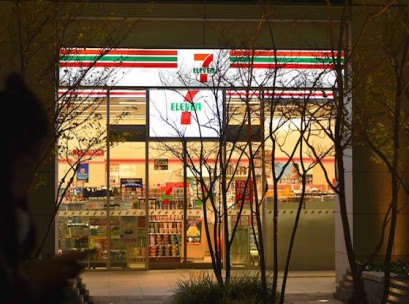 There is a growing view that codes of conduct are not worth the paper they are written on.
There is a growing view that codes of conduct are not worth the paper they are written on.
By and large, codes of conduct are regulation light – all care but little responsibility.
Certainly, the banking code of practice stands as something of a joke in the wake of the revelations of the current Royal Commission and there continues to be dissatisfaction from suppliers about the Food and Grocery Code of Conduct.
The Federal Government has commissioned professor Graeme Samuel to undertake a review of the Food and Grocery Code to establish its effectiveness as the first prescribed voluntary code under the Competition and Consumer Act 2010.
Finalised in 2014 after protracted discussions, the code regulates the conduct of those supermarket retailers and wholesalers that have agreed to be bound by the code in their dealings with suppliers including Coles, Woolworths and Aldi.
Coles and Woolworths both developed an enthusiasm for the code after the Australian Competition and Consumer Commission took action against them for anti-competitive practices.
The voluntary code was a more palatable prospect than legislative or regulatory changes.
Submissions sought
The Samuel review will seek input from retailers, suppliers, farms, government, regulators, legal and international bodies and findings will be submitted to the government within six months.
Stakeholders are invited to provide feedback on whether the code has been effective in improving the way the supermarkets – and wholesalers – deal with their suppliers.
The review’s terms of reference include consideration of the introduction of civil penalty provisions; whether or not the code should be mandatory rather than voluntary; levels of compliance by retailers and wholesalers; and the extent to which they have become bound by the code.
The Samuel review will compare the code with overseas regulation of commercial relationships between retailers, wholesalers and supplier and whether the code needs to be amended or should be repealed.
Public submissions for the Food and Grocery Code of Conduct review close on April 30th but a draft report to be issued in June will provide a further opportunity for stakeholder input.
In a parallel process, the Franchising Code of Conduct is also under review following a series of scandals involving leading retail franchise systems such as 7-Eleven, Domino’s Pizza, Caltex, Pizza Hut and Retail Food Group.
The franchising inquiry is being undertaken by the Parliamentary Joint Committee on Corporations and Financial Services on a reference from the Australian Senate.
Unlike the Food and Grocery code of Conduct, the Franchising Code is a mandatory industry code that includes penalties for infringements where parties have not acted in good faith or provided adequate disclosure of matters relevant to contracts.
The franchising code sets out mechanisms for resolving disputes between parties and sets out rights and obligations.
The Australian Competition and Consumer Commission has investigatory, audit and prosecution powers under the Franchising code and competition laws and has imposed penalties on a number of retail franchise systems, including Domino’s, Allphones and Pastacup.
The terms of reference set by the Senate for the Franchising Code of Conduct inquiry include an examination of the contractual rights and obligations of all parties, including termination rights and geographical exclusivity and the leasing arrangements and any limitations of the franchisee’s ability to enforce tenants’ rights.
The inquiry will consider the operation and effectiveness of the code, including the disclosure document and information statement in ensuring full disclosure to potential franchisees of all information necessary to make a fully-informed decision when assessing whether to enter a franchise agreement.
The inquiry will review the adequacy of information obligations for franchisors on likely financial performance of a franchise and worse case scenarios and the expected running costs, including cost of goods required to be purchased through prescribed suppliers.
The effectiveness of dispute resolution provisions, the adequacy and operation of termination provisions in the code and the imposition of restraints of trade on former franchisees following the termination of a franchise agreement are also included in the terms of reference.
Current enforcement provisions under the code will also be examined.
Battle is on
The beleaguered Franchise Council of Australia has indicated it will “continue to engage constructively and thoughtfully with any review into the sector” but it is disappointed that it was not consulted on the terms of reference.
In a bid to fend off further political focus on the franchising sector, the council had attempted to create an administrative review by Kate Carnell, the Australian Small Business and Family Enterprise Ombudsman.
Bruce Billson, who is the Franchise Council chairman, was recently admonished by his former parliamentary colleagues for taking up the franchising industry appointment after completing a term as Federal Minister for Small Business but while still a Member of Parliament.
Billson unsuccessfully tried to stop the Federal Government from legislating to extend the responsibility of franchisors for systemic breaches of workplace laws by franchisees.
Now he is battling, along with new Franchise Council CEO Mary Aldred, to limit further legislative or regulatory constraints on the franchising sector that might result from the current inquiry.
Billson said the industry proposal for the Carnell review would have examined the impact of challenging market conditions on small business and how the franchise model can support the success of small business owners and impact on competitiveness.
“It is unclear how the Senate inquiry will discern between the unavoidable challenges all small business owners face and the implications for enterprise success, and those particularly relevant for the small franchise business owner,” Billson commented on the political inquiry.
“The all-important mutually supporting and beneficial franchisee-franchisor collaborative relationship is not formed or deployed in its own bubble, but functions as part of a dynamic, competitive market economy. Industry-led initiatives are supporting the best in franchising.”
Billson said the council is encouraging all stakeholders in the Australian franchising scene to contribute to the parliamentary inquiry.
“This will assist the committee to identify the causal factors, including third party conduct by parties outside the franchise relationship, and the role of the franchise business model and its contribution to business viability, when considering cases of poor commercial outcomes,” he said.
“This kind of informed and thoughtful examination will help to identify any deficiencies or gaps in the current regulatory framework, unfair contract and fair trading protections and dispute resolution mechanisms, which the Senate has resolved to be the focus of the inquiry,” Billson argues.
“Ensuring that there is a full understanding of the current regulatory and competitive environment will mean that any recommendations for additional red tape, policy change, adjustment to agency operations or new public education and awareness campaigns, have been thoroughly assessed for their likely impacts.”
Submissions to the Joint Committee on Corporations and Financial Services inquiry into the Franchising Code of Conduct must be lodged by May 4.





